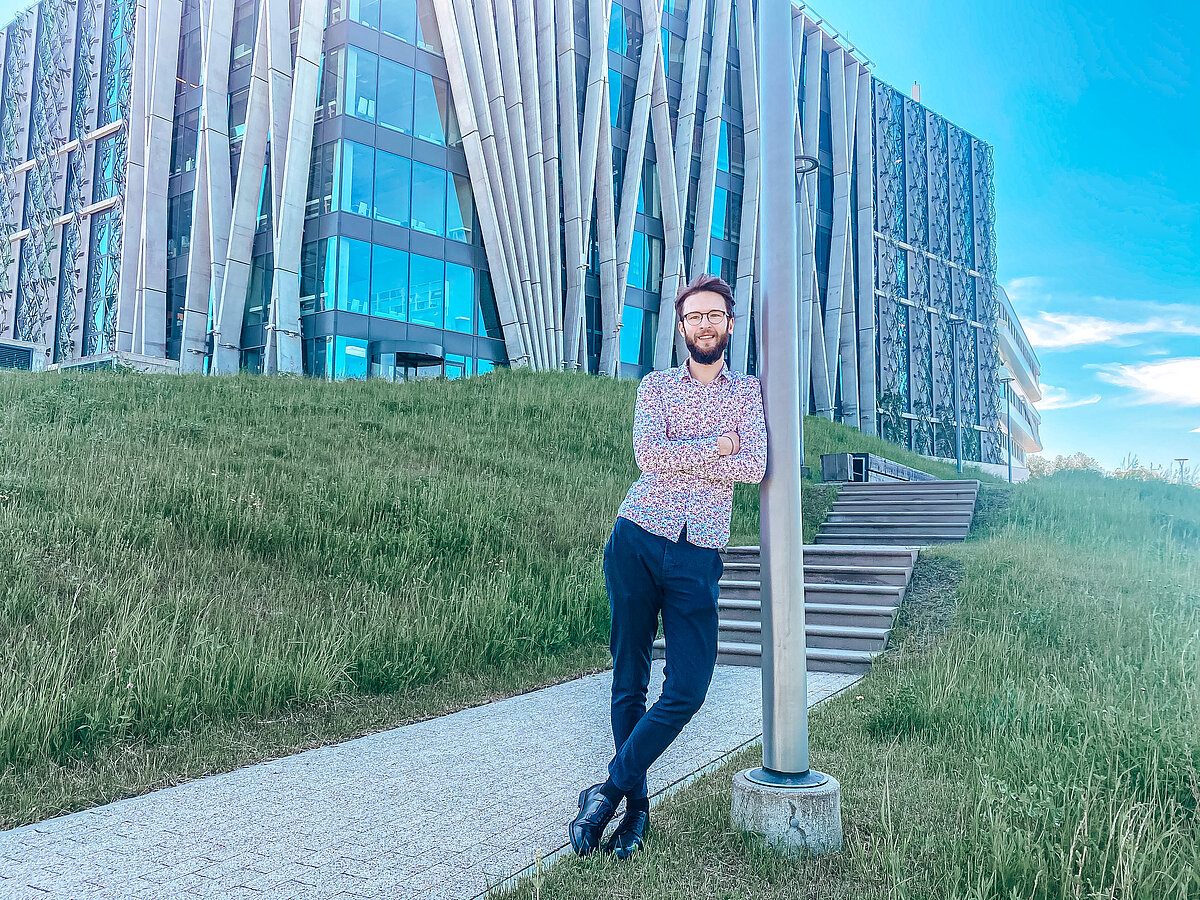
Kristaps Saršūns is a 1st year student of the doctoral study program of the Faculty of Chemistry of the University of Latvia and a recipient of the “MikroTik” scholarship for doctoral students in the field of exact and medical sciences administered by the University of Latvia Foundation. The researcher's dissertation is developed at the Faculty of Chemistry of the University of Latvia, led by scientific supervisor of Department of Physical Chemistry (FCC), assoc. prof. Dr. chem Agris Bērziņš and scientific consultant Dr. chem. Toms Rēķis.
The doctoral dissertation is dedicated to the acquisition of new organic materials with modulated physicochemical properties. The aim of the dissertation is to identify the legitimacy of the formation of solid solutions between structurally similar organic molecules - by determining the role of the crystalline structure and selecting a quantum chemistry calculation method that can predict the formation of these phases. The expected results of the dissertation could provide new proposals and solutions as to why such crystalline phases are formed.
In the first part of the study, the formation of solid solutions in xanthone analog systems with luminescence properties is investigated in part. Model substances - various xanthone derivatives - were used as the object of research. The choice is based on the information available in the literature that these compounds exhibit luminescence at room temperature as well as their similar molecular structure.
In the period since the start of the scholarship, it has been studied that solid solutions are formed between different pairs of xanthone derivatives, as well as that technologically significant physicochemical properties can be modulated in the process of solid solution formation, which allows modulation in a continuous way. In addition, it should be mentioned that some of the results have already been published - Saršūns, K .; Bērziņš, A .; Rēķis, T. Solid Solutions in Xanthone - Thioxanthone Binary system: How well are Similar Molecules Discriminated in the Solid State? Crystal Growth & Design, 2020, 20 (12), 7997-8004.p. (DOI: 10.1021 / acs.cgd.0c01241), of which Kristaps is one of the authors.
The scholarship holder has managed to become a lecturer and the experience gained in the previous semester in conducting laboratory work in general chemistry has improved his skills in working with students. Of course, in the previous semester, studies could take place in person, which did not cause significant difficulties, but in this semester, when work with students takes place completely remotely, the academic environment is affected. In this semester, the pedagogical work of the stipendiary is manifested in the improvement and evaluation of practical work (seminars) of the courses “Physical Chemistry I” and “General and Physical Chemistry”.
However, talking about the development of the dissertation research, fortunately, Kristaps can say that everything goes according to the development plan and the research activity is not affected.
Kristaps emphasizes that it is still difficult to talk about the overall result of the dissertation, because there are still two years of studies ahead, but when it comes to the future plans for studies - a summer doctoral examination in the sub-sector, namely physical chemistry, also in hopes of going on business trips abroad - international conferences, professional development courses and practice in another research laboratory.
In terms of future plans for the current study, it is planned to determine the crystalline structures of the products obtained in the near future, based on single crystal X-ray diffraction (SCXRD) data, as well as luminescence decay kinetics studies to obtain information on the lifetime of the proposed state. The research will be carried out in collaboration with both the Latvian Institute of Organic Synthesis (OSI) and the Institute of Solid State Physics (CFI) of the University of Latvia. The data from these and previous studies might allow the development of a publication manuscript to begin in the near future.
"This scholarship is an additional motivation for me to strive for the top. It is a pleasure to realize that you are materially provided and that doctoral studies can proceed according to the plan,” says the scholarship holder.
Kristaps wishes to University of Latvia Foundation to continue the support of the most outstanding students and researchers - in order to raise the overall image of Latvian science on a world-class background.
_________________
About the University of Latvia Foundation
Since 2004, the University of Latvia Foundation has provided an opportunity for patrons and cooperation partners to support both the University of Latvia and other leading Latvian higher education institutions, thus investing in the future of Latvia. The priorities of the LU Foundation are to support the best students and researchers, to promote the creation of a modern study environment, as well as the construction and reconstruction of university buildings.

 Academic Centre
Academic Centre

